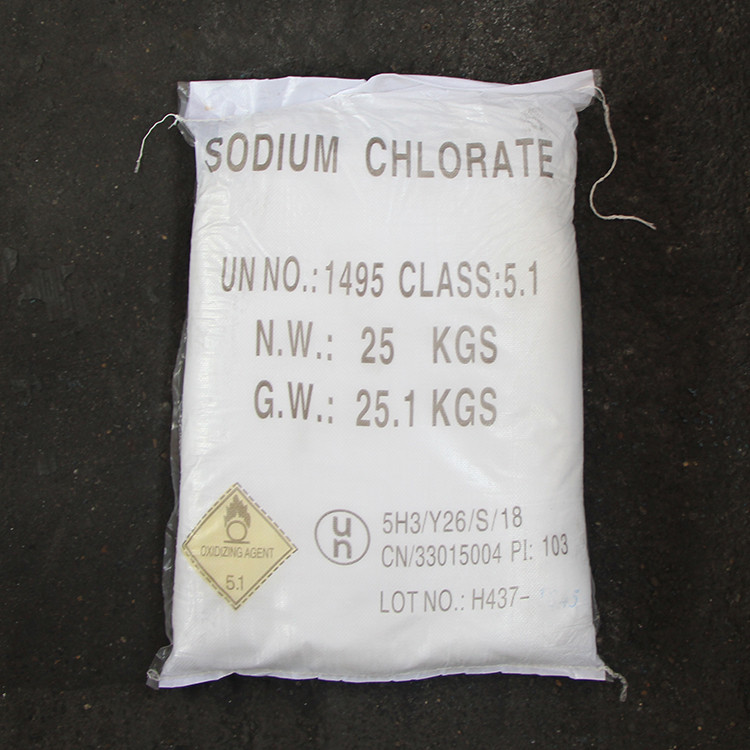



Sodium Chlorate - HEBEI FIZA TECHNOLOGY CO., LTD.|High Purity, Bulk Supply, Industrial Applications
Sodium chlorate (NaClO3) is a critical inorganic compound with widespread industrial applications. This article delves into its chemical properties, technical specifications, and key uses, while also highlighting the role of HEBEI FIZA TECHNOLOGY CO., LTD. in its production. The content is structured to provide a detailed understanding of sodium chlorate, supported by authoritative references and visual aids.
Understanding Sodium Chlorate: Chemical Properties and Characteristics
 Sodium chlorate is an inorganic compound with the chemical formula NaClO3. It appears as a white crystalline powder and is highly soluble in water. One of its defining characteristics is its hygroscopic nature, meaning it readily absorbs moisture from the environment. When heated above 300°C, sodium chlorate undergoes thermal decomposition, releasing oxygen and leaving behind sodium chloride (NaCl).
Sodium chlorate is an inorganic compound with the chemical formula NaClO3. It appears as a white crystalline powder and is highly soluble in water. One of its defining characteristics is its hygroscopic nature, meaning it readily absorbs moisture from the environment. When heated above 300°C, sodium chlorate undergoes thermal decomposition, releasing oxygen and leaving behind sodium chloride (NaCl).
According to the National Institute of Standards and Technology (NIST), sodium chlorate is a foundational compound in chemical manufacturing, particularly in the production of chlorine dioxide (ClO2). Its stability under normal conditions and reactivity under specific temperatures make it a versatile chemical for industrial processes.
Technical Specifications: Precision and Purity
The quality of sodium chlorate is defined by its purity, moisture content, and impurity levels. Below is a detailed specification table for FIZA's sodium chlorate:
| ITEMS | STANDARD |
|---|---|
| Purity-NaClO3 | ≥99.0% |
| Moisture | ≤0.1% |
| Water Insolubles | ≤0.01% |
| Chloride (based on Cl) | ≤0.15% |
| Sulfate (based on SO4) | ≤0.10% |
| Chromate (based on CrO4) | ≤0.01% |
| Iron (Fe) | ≤0.05% |
Additional specifications include:
| Brand Name | Purity | Molecular Weight | Appearance |
|---|---|---|---|
| FIZA | 99% | 106.44 | White crystalline solid |
| CAS No. | EINECS No. | Molecular Formula | Other Names |
| 7775-09-9 | 231-887.4 | NaClO3 | Sodium chlorate Min |
Key Applications of Sodium Chlorate
Sodium chlorate is predominantly used in the production of chlorine dioxide (ClO2), which is essential for pulp bleaching in the paper industry. According to the NIST, chlorine dioxide is a powerful oxidizing agent that removes lignin from wood pulp, resulting in high-brightness paper. This application accounts for approximately 95% of sodium chlorate usage globally.
Beyond pulp bleaching, sodium chlorate serves as a precursor for other chlorate compounds via salt metathesis reactions. For instance, it is used to produce sodium perchlorate through electrolysis, a process critical for aerospace and pyrotechnics. Additionally, sodium chlorate is employed in water treatment and disinfection due to its oxidizing properties.
Industrial Significance and Production
The HEBEI FIZA TECHNOLOGY CO., LTD. is a leading manufacturer of sodium chlorate, offering products tailored to industrial needs. With a focus on high purity and consistent quality, FIZA ensures its sodium chlorate meets stringent industry standards. The company provides flexible packaging options, including 25kg/bag and 1000kg/bag, to accommodate diverse customer requirements.
As noted in the NIST's research on chemical standards, the global demand for sodium chlorate underscores its role in modern manufacturing. FIZA’s commitment to innovation and sustainability aligns with industry trends, making it a trusted supplier for businesses seeking reliable chemical solutions.
Why Choose FIZA's Sodium Chlorate?
FIZA's sodium chlorate offers several advantages:
- High Purity: ≥99.0% purity ensures optimal performance in industrial processes.
- Low Impurities: Minimal moisture and impurity content reduce the risk of contamination.
- Customizable Packaging: Flexible options to suit different operational scales.
- Reliable Supply Chain: FIZA’s production capabilities ensure consistent availability.
For businesses seeking bulk sodium chlorate, buy sodium chlorate, or insights into sodium chlorate use, FIZA provides comprehensive support, including technical assistance and competitive pricing.
Conclusion: Sodium Chlorate in the Modern Industrial Landscape
Sodium chlorate remains a cornerstone of industrial chemistry, driving advancements in paper production, water treatment, and chemical synthesis. Its precise specifications and versatile applications highlight its importance in global manufacturing. HEBEI FIZA TECHNOLOGY CO., LTD. exemplifies the quality and innovation required to meet modern industry demands.
For further information, explore FIZA's sodium chlorate product page or contact the company directly to discuss your requirements.
References
NIST Reference: National Institute of Standards and Technology. (n.d.). Chemistry Division. Retrieved from https://www.nist.gov/
Additional Sources:
-
How and Why to Disinfect Water Softeners for Safe, Reliable WaterNewsNov.24,2025
-
Effective Deionized Water Disinfectant Solutions for Healthcare & Industrial UseNewsNov.24,2025
-
Commonly Used Disinfectant for Drinking Water – Global Uses & InnovationsNewsNov.23,2025
-
Chemical to Disinfect Water – Essential Solutions for Safe, Clean Drinking WaterNewsNov.23,2025
-
Blue Water Disinfectant: Safeguarding Global Water Quality with InnovationNewsNov.22,2025
-
Bleaching Powder for Water Disinfection – Affordable & Effective Water Treatment SolutionNewsNov.22,2025
-
Bleaching Powder Drinking Water: Effective, Affordable Disinfection WorldwideNewsNov.21,2025










